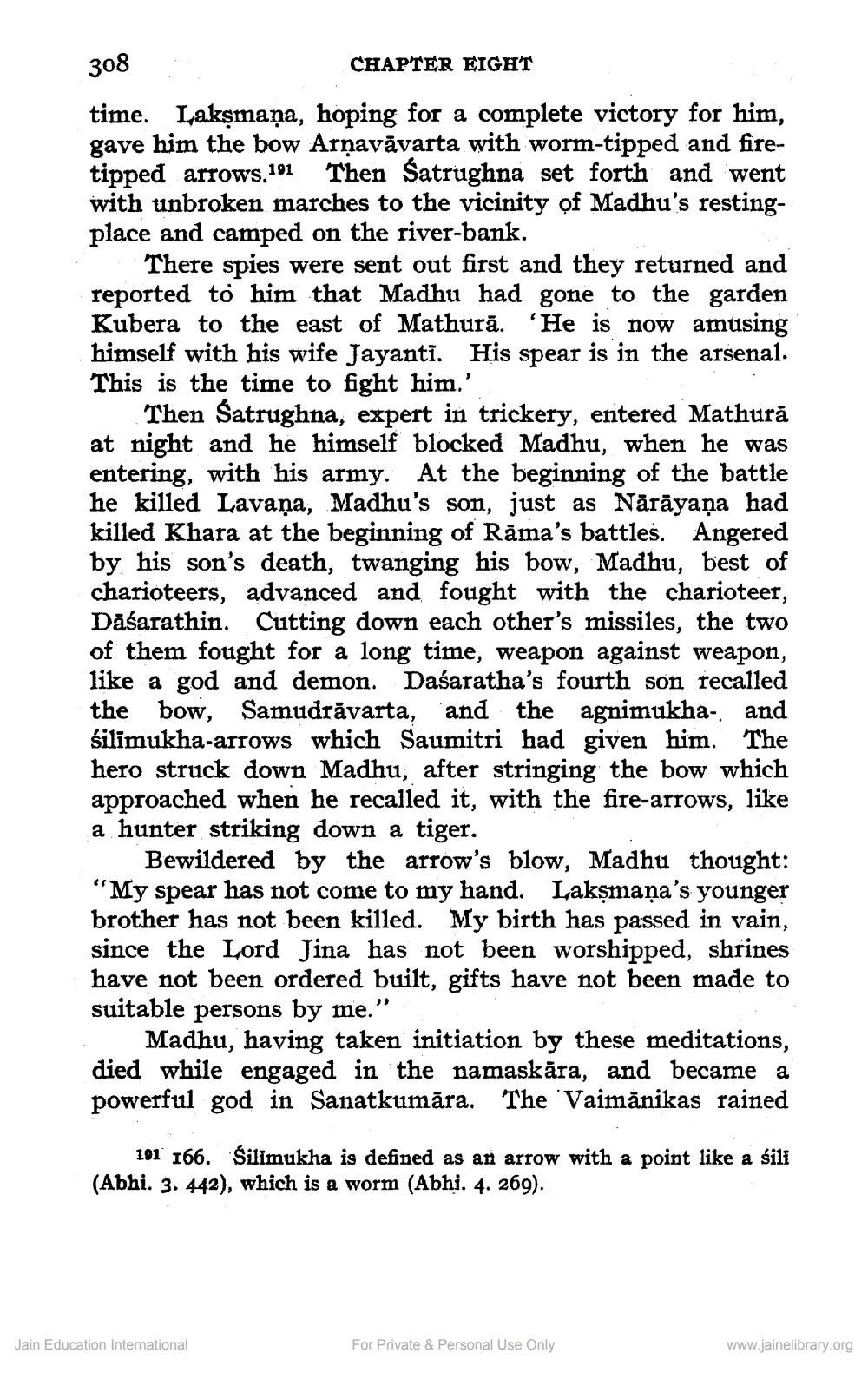________________
308
CHAPTER EIGHT
time. Lakşmaņa, hoping for a complete victory for him, gave him the bow Arņavāvarta with worm-tipped and firetipped arrows.191 Then Satrughna set forth and went with unbroken marches to the vicinity of Madhu's restingplace and camped on the river-bank.
There spies were sent out first and they returned and reported to him that Madhu had gone to the garden Kubera to the east of Mathurā. 'He is now amusing himself with his wife Jayanti. His spear is in the arsenal. This is the time to fight him.'.
Then Satrughna, expert in trickery, entered Mathurā at night and he himself blocked Madhu, when he was entering, with his army. At the beginning of the battle he killed Lavaņa, Madhu's son, just as Nārāyaṇa had killed Khara at the beginning of Rāma's battles. Angered by his son's death, twanging his bow, Madhu, best of charioteers, advanced and fought with the charioteer, Dāśarathin. Cutting down each other's missiles, the two of them fought for a long time, weapon against weapon, like a god and demon. Daśaratha's fourth son recalled the bow, Samudrăvarta, and the agnimukha- and silīmukha-arrows which Saumitri had given him. The hero struck down Madhu, after stringing the bow which approached when he recalled it, with the fire-arrows, like a hunter striking down a tiger.
Bewildered by the arrow's blow, Madhu thought: "My spear has not come to my hand. Lakşmaņa's younger brother has not been killed. My birth has passed in vain, since the Lord Jina has not been worshipped, shrines have not been ordered built, gifts have not been made to suitable persons by me."
Madhu, having taken initiation by these meditations, died while engaged in the namaskāra, and became a powerful god in Sanatkumāra. The 'Vaimānikas rained
101 166. Silimukha is defined as an arrow with a point like a sili (Abhi. 3. 442), which is a worm (Abhi. 4. 269).
Jain Education International
For Private & Personal Use Only
www.jainelibrary.org




